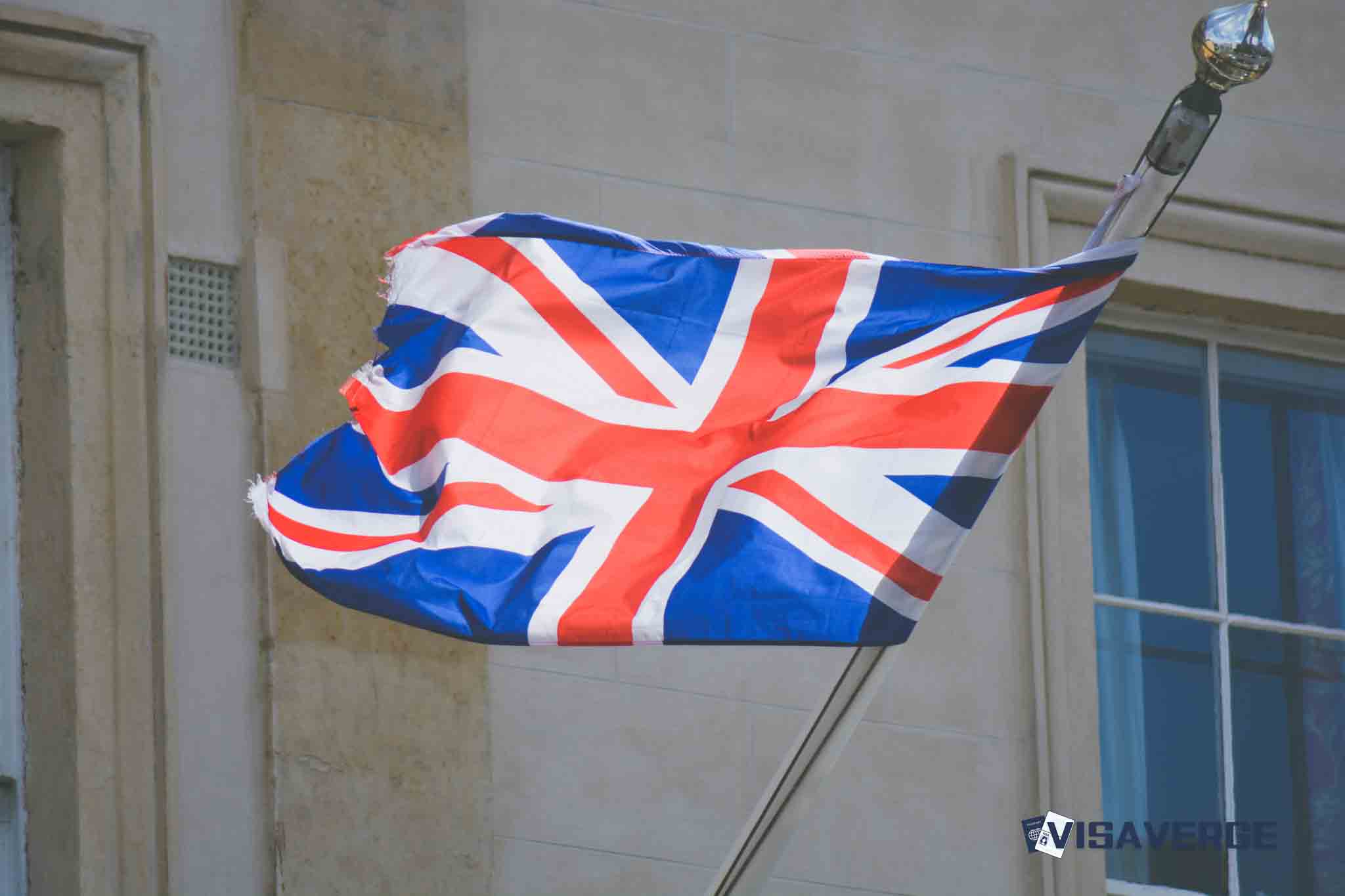Key Takeaways
• British Airways leads with 6,938 lost baggage searches each month, far outpacing other UK airlines.
• KLM and easyJet follow, with over 1,000 monthly searches; Emirates and Lufthansa round out the top five.
• Tight layovers, staff shortages, and poor data sharing dramatically increase the risk of lost luggage globally.
Every year, countless travelers pass through the United Kingdom’s busiest airports. Some fly for business, others for family, and many for adventure. For most, a missing bag is the last thing on their mind as they check in for a flight. Yet, as new research by Ink Digital has shown, worries about lost luggage remain very real for many. By looking closer at which airlines receive the most online searches about lost luggage, this article helps unpack what passengers truly face — and what can be done to avoid joining the unlucky group searching for their bags after landing.
Introduction: Why Lost Luggage Is Still a Worry

Losing luggage can affect any type of traveler. Whether the journey lasts a day or several weeks, misplaced suitcases disrupt plans, cause stress, and sometimes lead to extra costs. According to ink Digital’s study, the number of online searches for missing bags is high enough that it offers a true glimpse into passenger concerns, even beyond official complaint numbers. As reported by VisaVerge.com, this type of data is crucial for understanding the real experiences of people flying to and from the United Kingdom 🇬🇧.
Overview of the Data and Its Scope
The information discussed here comes directly from Ink Digital’s analysis of monthly online searches related to lost luggage in the United Kingdom 🇬🇧, covering the period leading up to and including 2024. The research highlights which airlines passengers most associate with lost bags by tracking how often people look up terms about misplaced luggage. Rather than drawing only from official airline statistics, it captures what travelers themselves want to know — reflecting worry, frustration, and the desire for quick solutions.
Summary of Findings
- British Airways leads with nearly 7,000 monthly online searches about lost baggage.
- KLM and easyJet follow, with over 1,000 searches each.
– Emirates, known for luxury travel, ranks surprisingly high at number four. - Lufthansa rounds out the top five, despite few formal complaints.
- The study suggests many factors contribute to this trend: busy transfer airports, tight flight connections, limited sharing of baggage data, and pressures on staff and systems.
Highlighting the Top Five Airlines for Lost Luggage Searches
British Airways and Lost Luggage
British Airways, the United Kingdom’s national airline, sits at the top of the list with 6,938 monthly searches related to lost baggage. This number is much higher than any other airline operating in the UK. While British Airways brands itself as a leader in premium service, customer concerns about their luggage remain. The company invested £6.5 billion to update systems, including baggage handling at London Heathrow Terminal 5. Still, high numbers show that travelers continue to feel uncertain about whether their bags will arrive when they do.
What does this mean for passengers? First, it shows that high pricing or even recent upgrades do not guarantee smoother experiences with luggage. Second, frequent online searches reveal that people want answers — quickly. They want to know where their bags are and what steps to take if their luggage is lost.
KLM’s Track Record and Passenger Worries
KLM, the Netherlands’ flagship airline, comes in second, with 1,372 searches each month related to lost luggage. The company has taken steps to improve. KLM claims to recover 90% of delayed bags within three days, which is a strong record compared to global standards. They also introduced a digital tracking system at Amsterdam Schiphol Airport, letting travelers follow their bags in real time using an app on their phones.
But despite these efforts, search data still shows travelers are anxious. Even with advanced technology, KLM passengers lose enough confidence in the process that they continue searching online for help or information.
easyJet’s High Volume of Complaints
easyJet, known as a low-cost carrier, places third, with 1,208 searches for lost luggage every month. For those traveling on a budget, the chance of losing a bag is a serious worry. The Civil Aviation Authority (CAA) notes that easyJet also had the third-highest number of customer complaints in the final quarter of 2024, with 2,953 cases opened. This clear overlap between lost luggage searches and formal complaints suggests that easyJet struggles more with meeting customer expectations when problems arise.
Emirates: A Surprising Entry in the Top Five
At number four is Emirates, with 1,048 searches each month. Most travelers link Emirates to luxury, comfort, and top service. So seeing them in this ranking may surprise many. The likely reason? Emirates operates from a major global airport — Dubai International. Large, complex airports like this are prone to baggage hiccups, especially with so many connections in a short amount of time. When luxury airlines face the same lost luggage problems, it proves that these issues can happen to anyone, regardless of ticket price.
Lufthansa: Low Complaints but High Search Interest
Finally, Lufthansa closes the top five with 987 monthly searches about lost luggage. On the surface, this would suggest many disappointed travelers. However, official CAA records show Lufthansa only received 2 complaints about lost bags in late 2024. This sharp difference points out a key lesson: online search interest doesn’t always match formal complaints. Travelers may seek answers and reassurance online even if they never file a formal claim.
Comparing Today’s Data with Past Trends
Although large investments in technology and more staff training have helped, the overall problem of lost luggage in the United Kingdom 🇬🇧 and worldwide is worse than last year. Reports show that the number of mishandled bags jumped by over 10 million over the last 12 months. The increase in international travel, complex transfers, and insufficient baggage data sharing between airlines and airports all contribute to this setback. Compared to earlier years, more travelers are dealing with — or at least fearing — a baggage issue with each trip they take.
Key Factors That Lead to Lost Luggage
Michael Ryan, Owner & CRO of Ink Digital, explains: “Lost luggage often arises due to tight layovers, staffing shortages, and mishandling during transfers.” To break this down:
- Tight Layovers: Short gaps between connecting flights give luggage handlers little time to move bags from one plane to another.
- Staffing Shortages: When airports or airlines do not have enough workers, mistakes are more likely.
- Baggage Mishandling during Transfers: Every time a bag changes hands, there is a risk it could be put on the wrong plane or left behind.
- Busy International Hubs: Airports like Dubai, Doha, Istanbul, and London Heathrow handle many connecting flights. Their complex designs mean luggage must travel farther and through more checkpoints than at smaller airports.
- Data Sharing Problems: One-third of airports do not give airlines real-time information on baggage delivery, and 42% of airlines do not update airports about bags’ locations either.
All these factors add up to make the journey of a suitcase more risky, especially when travelers fly internationally. International routes are five times more likely to result in a lost bag compared to domestic trips.
The Size and Impact of Lost Luggage Worldwide
Looking beyond the UK, the numbers are staggering:
- Airlines spend about $2 billion each year dealing with lost or delayed luggage.
- Each year, around 1.8 million bags are lost or stolen.
- In just the last year, over 10 million more bags were mishandled than before.
- When airports and airlines do not share baggage data, checking up on lost luggage becomes even harder and slower for everyone involved.
Not only do these lost bags cost airlines money, but they also cost passengers time and peace of mind. A trip can quickly turn from a positive experience into a stressful event for anyone who lands without their belongings.
How You Can Reduce the Chance of Losing Your Luggage
While no one can make lost luggage disappear completely, you can take simple steps to lower your chances:
- Choose Carry-On Luggage: If possible, pack everything you need into a bag small enough to bring with you on the plane. This way, you always know where your things are.
- Use Luggage Trackers: Tools like Apple AirTags or Samsung SmartTags let you follow your suitcase’s journey using your phone.
- Buy Travel Insurance: If your bag gets lost, travel insurance can help pay for essentials or even replace your items.
- Plan Time for Connections: Try not to book very short layovers when switching planes at busy airports.
- Keep Essentials in Hand Luggage: Pack important documents, medicine, chargers, and a change of clothes in your carry-on.
Following these steps won’t guarantee your bag will never go missing, but they help lessen the impact on your trip if it does.
Why This Problem Still Matters
Despite years of improvement and new technology, airlines and airports across the world keep struggling with mishandled luggage. For families, students, and business people traveling for immigration or work, lost luggage can have extra consequences — like missing documents or items needed for an application or interview. It can also delay settling into a new home or workplace, creating more stress at a critical time.
Passengers want clear answers when trouble strikes. Airline websites, customer service call centers, and airport help desks have to work together if a lost bag is to be found quickly. When people do not receive updates, or when companies blame each other instead of helping, trust quickly disappears.
The Role of Data: Why Search Volume Matters
The numbers shared here do not tell us exactly how many bags are lost, but rather how many people are worried enough to search for help. High online search volume, especially for British Airways, KLM, and easyJet, proves that people need more information and faster solutions. It is a call to airlines: invest not just in better systems, but also in clearer communication about what passengers should do when their bags do not arrive.
Limitations of the Data
This analysis does not measure every single lost suitcase. Some travelers do not search online, while others may search several times. The data shows customer concern, but not always the final answer about which airline loses more actual bags. Formal complaints (like those made to the Civil Aviation Authority) might be much lower than online search volume. The best picture of baggage handling comes from looking at both kinds of data.
What the Numbers Mean for Passengers, Airlines, and Airports
When people constantly search online for lost luggage with British Airways, KLM, or any other airline, it reveals a need for change in how the travel industry treats this problem. Airlines and airports should:
- Share more baggage data in real time.
- Give passengers simple, clear instructions about lost and found processes.
- Make it easier to file a report or check on a missing bag online.
- Work together to update and improve baggage tracking.
For travelers, understanding which airlines draw the highest search volumes for lost luggage might help shape decisions about how and with whom to fly.
Key Takeaways and What Happens Next
Lost luggage remains a top concern for travelers in the United Kingdom 🇬🇧 and worldwide. British Airways, KLM, and easyJet get more lost luggage searches than any other airlines in the country. Even luxury airlines like Emirates face challenges tied to complex airport hubs and fast connections. The problem has grown in the past year, showing that more work is needed on both technology and customer service.
If you plan to travel soon, take basic steps to protect your things. Pack wisely, use a digital tracker if you can, and buy travel insurance for peace of mind. If you find yourself in the unlucky group searching for a missing bag, remember that help is out there — whether online or at the airport. For official advice on how to handle lost luggage, travelers can visit the Civil Aviation Authority’s baggage advice page.
While no solution is perfect, both airlines and airports must keep working to make lost luggage less common and easier to fix when it does happen. Passengers deserve answers, support, and, above all, the safe arrival of their belongings — every time they fly.
Learn Today
Civil Aviation Authority (CAA) → The UK government body responsible for regulating airlines, passenger rights, and aviation safety, including luggage complaints.
Layover → A scheduled stop between flights where passengers and their luggage may be transferred from one plane to another.
Baggage Mishandling → When an airline misplaces, damages, or delays a passenger’s luggage during transit or transfer processes.
Luggage Tracker → A small digital device (like an Apple AirTag) placed inside a suitcase to monitor its real-time location through a smartphone app.
Travel Insurance → A policy covering losses such as stolen, delayed, or lost luggage, providing compensation and reimbursement for essential items.
This Article in a Nutshell
Lost luggage is a persistent problem in UK airports, affecting passengers of all backgrounds. British Airways, KLM, and easyJet receive the most online queries about missing bags. Major causes include tight connections and limited data sharing. Travelers can reduce risk with trackers, smart packing, and choosing carry-on bags whenever possible.
— By VisaVerge.com
Read more:
• Federal Aviation Administration bans lithium batteries in checked luggage
• Top 10 USA Airlines Most Likely to Lose Your Luggage
• Indian Student Loses Luggage on Air India, Sparks Online Outcry
• American Airlines Raises Baggage Fees: New $40 Luggage Charge
• Tourists Left Stranded in Iceland Freezing Cold with No Clothes as easyJet Flight Ditches Luggage in Manchester












